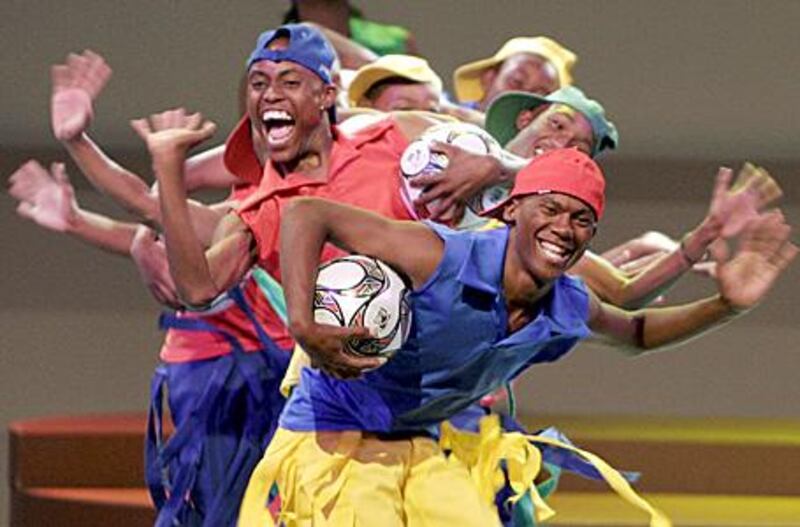JOHANNESBURG // When people speak of the football calendar becoming bloated with meaningless matches, it is usually tournaments like the Confederations Cup that they have in mind. It is telling of the competition's status that its name tends to recall the tragic images of Marc-Vivian Foe's death during a semi-final between Cameroon and Colombia in 2003, rather than a spectacular goal or a great game. Perhaps, though, its reputation is beginning to change.
This year's tournament, which starts tomorrow, carries significance in providing South Africa in dry-run in hosting the World Cup. The tournament has given the World Cup hosts a rehearsal a year before the real thing since 2001, but, here, there is probably more need than ever before. Nobody doubted that Germany or Japan and South Korea would put on a good show, but there have been plenty of questions about South Africa: this is a chance for them to prove to themselves and the world that they are ready.
Even aside from the doubts over South Africa's readiness, there is a sense that the Confederations Cup is growing in prestige. There would be no possibility now, for instance, of one of the qualifiers declining to take part as Germany did after winning the European Championship in 1996 and finishing runners-up in the World Cup in 2002, or France did after winning the World Cup in 1998. Fifa took over the running of the tournament and renamed it the Confederations Cup in 1997, but it can trace its origins back to the Mundialito, featuring Uruguay, Italy, West Germany, Brazil, Argentina and Holland - five of the six winners of the World Cup, plus Holland who replaced the other, England - held in Montevideo in 1980 to celebrate the 50th anniversary of the first World Cup.
There followed the Artemio Franchi Trophy, a competition held in 1985 and 1993 between the champions of the European and South American confederations. In 1992 and 1995 Saudi Arabia hosted the King Fahd Cup, featuring themselves and various confederational champions, a tournament that was successful enough to persuade Fifa to take over, rationalising the various events into the modern competition, which features the hosts, the six confederational champions and the world champions. Its prestige has grown with every edition.
For the likes of Iraq and New Zealand, the tournament is a rare opportunity to mix with the international elite. For those nations with more realistic World Cup aspirations, it is useful preparation, offering a rare chance for an international coach to work with his players over a protracted period, perhaps beginning to instil the sort of tactical ideas that cannot be taught in the three days available before a qualifier.
Simply seeing his players interacting in a squad environment over the span of a tournament is of value to a coach: who gets bored? Who gets homesick? Which players needle each other? There may have been a touch of diplomacy about the Spain striker David Villa's claim that it would be "a terrific morale boost" were they to win the trophy, but there is substance to his comments about the value of getting used to the country and conditions a year early.
And for the rest of us, the Confederations Cup offers an early insight into what might happen next summer. Egypt may be double African champions, but how do they measure up against sides from other continents? Can Italy rebuild after the disappointments of Euro 2008? Will South Africa be the weakest ever World Cup hosts? Just how pragmatic are Brazil? And, perhaps most intriguingly of all, was their Euro 2008 success a freak, or will Spain at last become one of the world's elite?
The Confederations Cup will confirm nothing, but it might just give us a hint. sports@thenational.ae





